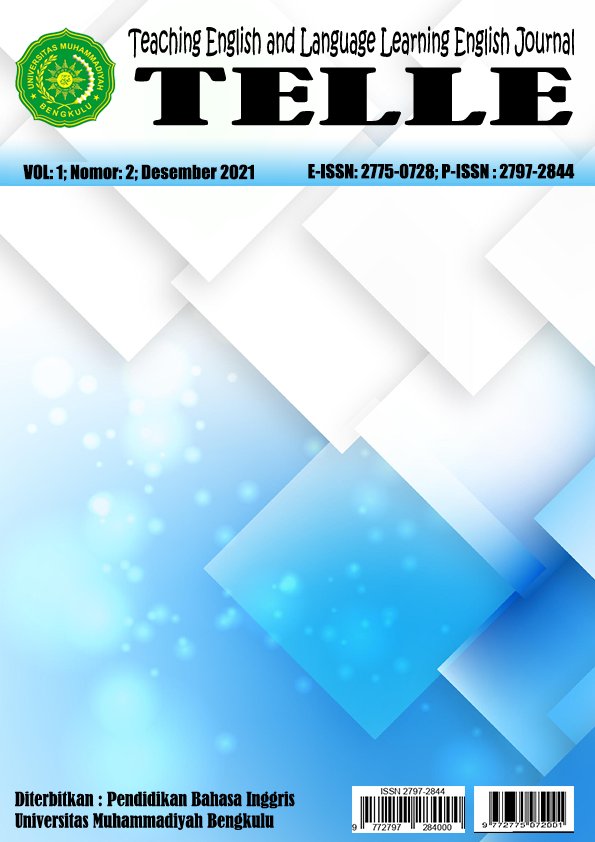Students’ Attitudes toward Hybrid Teaching Model
DOI:
https://doi.org/10.36085/telle.v1i3.2967Abstract
Hybrid teaching is teaching that uses an online multimedia learning system but does not disappear face-to-face sessions, the students hybrid teaching models attitudes at class. This research has been conducted using a qualitative descriptive method. According to Meleon (2011) qualitative research is a research procedure that intends to understand the phenomenon of what is experienced but research subjects holistically (intact). The aim of the research to find out Students hybrid teaching mode attitudes at class. The researcher describes the results of this study. The researcher found several forms of students'' attitudes towards hybrid teaching. Researchers gave questionnaires to students who had done online learning data collection was carried out on August 7-11, 2021). The questionnaire is based on Meleon (2011) regarding: students' attitudes towards English class face-to-face and blended learning instructions. Based on the results of research and discussion, it shows that the percentage of students' attitudes towards hybrid teaching is at a moderate level. Where the sufficient level is 76%-100% Sufficient or Good which is shown in the percentage table. Students' attitudes towards hybrid teaching are at a high level.
Keywords: Students’ Attitudes, Hybrid Teaching ModelReferences
Bersin, Josh. 2004. The Blended Bearning Book:Best Bractices, Proven Methodologies, and Lessons Learned. San Francisco: Pfeiffer
Komalasari, K., Arafat, Y., & Mulyadi, M. 2020. Principal’s Management Competencies in Improving the Quality of Education. Journal of Social Work and Science Education, 1(2), 181-193
Maryansyah, Y., Nurcholis, M.I. & Anggraini, R. 2021. Learning English during the covid-19 pandemic at Indonesian univercity.
Moleong, 2011, Metodologi Penelitian Kualitatif, Bandung: Rosda
Murphy, M. P. 2020. COVID-19 and emergency eLearning: Consequences of the securitization of higher education for post-pandemic pedagogy. Contemporary Security Policy, 1–14
Sudzina, M., Garnam, C. and Kaleta, R. (2003, March). Preparing for and Teaching Hybrid Courses. PowerPoint Presentation presented at Midwest Educause.
Waller, Vaughan and Wilson, Jim. (2001). A Definition for E-Learning†in Newsletter of Open and Distance Learning Quality Control.
Washlurachim Safitri, Aji Prayogo. (2021). The Ability of Students to Use an Android-Based Multimedia Learning Website Called "KELAS KITO" at Muhammadiyah University of Luring the Covid-19 Pandemic.
Yoko, Hirata and Yoshihiro, Hirata, (2008). Japanese Students’ Attitudes towards Hybrid Learning. Japanese Students’ Attitudes towards Hybrid Learning.





